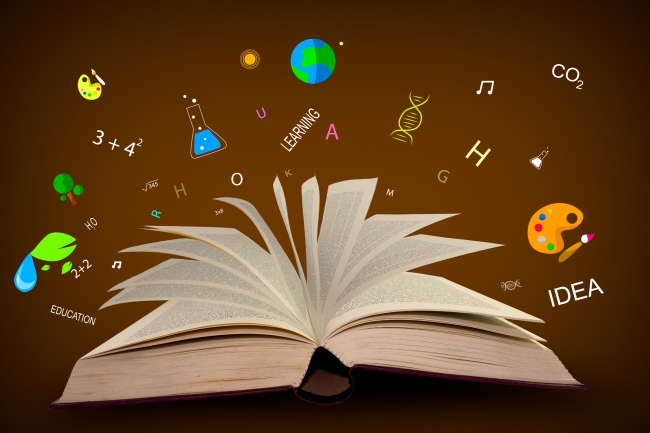You have /5 articles left.
Sign up for a free account or log in.

yuii/iStock/Getty Images Plus
As my grandson begins the college application process, he recently asked, “Why do I have to take all this liberal arts stuff? I want to design computer games. What do English literature and history have to do with computer programming?”
But it’s not just my grandson who is asking questions like this. Parents also want to know what the liberal arts have to do with their child getting a high-paying first job so that they can pay off their college loans. And that stands to reason. College has gotten very expensive, with tuitions increasing rapidly since the early 2000s. At the same time, many colleges that once were bastions of the liberal arts and sciences have increasingly become defined by vocationalism. Some colleges have dropped the liberal arts and sciences almost entirely. Computer programming is in. Comparative literature is out.
While nothing is wrong with majoring in a vocational discipline like computer science or accounting, I want to argue here that all students, whatever they plan to do in life, will need a healthy dose of the liberal arts and sciences to make it through life. Why do I say this? Because going to college is not just about getting a well-paying first job—or other well-paying jobs after that. As many experts have said, it’s also about developing core skills like reading, writing and mathematics; about learning what it means to live in a free and democratic society; about appreciating the performing and musical arts; and about understanding the principles of science and numeracy. These competencies are just a few of the countless ones that are developed largely by studying the liberal arts and sciences—competencies that, perhaps most important, all students will need and that will apply far more throughout their entire lives than narrow vocational skills.
Indeed, this understanding came home to me in an affecting and very personal way after I had retired, following several decades serving as a college professor and administrator. I came to the stark realization upon retiring that I was now … nothing! I no longer had any major responsibilities, only plenty of leisure time on my hands. And then, when I thought that my intellectual and productive life was over, memories of many of the liberal arts courses I took as a college freshman 47 years before came to my aid.
Let me explain.
During my freshman year, in 1961, I took a required general education liberal arts course entitled Western Civilization. As we read Homer, Plato, Socrates, Aristotle and Herodotus, I struggled to stay awake in class. I didn’t see what relevance Plato and the others had to the era in which I lived or, indeed, to the future. After almost flunking, I vowed never to take a course like that again. Fast-forward 47 years. Just as I was preparing to retire as a college president, I experienced growing shame and embarrassment that I had blown off my Western Civilization course freshman year, especially since many of the books I had read not only served as the basis for what I had taught as a history professor, but also because many of them have become extremely relevant to the political turmoil taking place in the world in which I now lived.
As a retired academic, I wanted to prove to myself that I could have done better. It was simply a matter of pride. So, at the invitation of Chris Nelson, a friend who was president of St. John’s College, the “Great Books” school in Annapolis, Md., I did an utterly crazy thing and enrolled at his institution. I took the first-year seminar, rereading many of the classics I had stumbled over during my first real freshman year. I had a blast and ended up writing a humorous book about the experience entitled Racing Odysseus: A College President Becomes a Freshman Again (University of California Press).
Another freshman-year liberal arts and sciences course I took in 1961 was Introductory Biology, as part of my science requirement. At the time, I had absolutely no desire to go into medicine or become a scientist. So I wondered why I was required to take this course. “What does biology have to do with anything in my future life?” I asked myself, anticipating my grandson’s question many years later.
I took the course, did reasonably well in it and then moved on, taking no more science for the duration of my university career. Now in retirement 47 years later, I had an opportunity to join my family for a cruise to the Galapagos Islands in Ecuador, where Charles Darwin, the naturalist and biologist, developed the theory of evolution.
Just before departing for our cruise, I remembered freshman-year biology where we studied (among other things) selections from Darwin’s On the Origin of Species. I dusted off a copy I had saved through the years, borrowed from the library a copy of the diary he kept of his voyage to the Galapagos on HMS Beagle and packed both books in my suitcase. Early every morning, along with a growing number of fellow passengers collected around me, I stood on the prow of our ship and read out loud sections of Darwin’s diary as we passed by San Cristobal, Floreana, Isabela and Santiago—the islands Darwin knew so well. The intro biology course I was required to take freshman year now came to life for me and made our trip to the Galapagos uncommonly special.
Finally, another freshman-year liberal arts course I took was Introductory Spanish—again, only because it also was required. But now, well into my retirement, my Episcopal church became involved with a sister congregation in Cuba, with the result that my interest in Spanish—long dormant if not completely suppressed—was immediately revived. Over the next three years, I accompanied my Spanish-speaking wife on several expeditions she led to Havana and Santa Cruz del Norte, where our sister church was located. But because I could not speak or read Spanish, I missed out on so much.
So when COVID hit in 2020 (and with even more time now on my hands) I signed up for an adult beginner’s course in Spanish at our local high school. I also read everything I could get my hands on about Cuba, its history and culture. And between travel to Cuba, my Spanish course and what I was reading, I became an important part of our church’s outreach activities in Cuba and am still very much involved today. And it all stated inauspiciously in freshman Spanish, a language I never thought I would ever have to use.
The point I’m trying to make here is that I’ve learned firsthand that curtailing or eliminating altogether the liberal arts and sciences from a student’s college education simply because they don’t seem relevant to getting a good job is extremely shortsighted. It is shortsighted because a major purpose of an undergraduate education is to open a student’s mind to the arts, literature, science and foreign languages and cultures for the simple reason that (as happened to me) throughout their lives they will actually use what the liberal arts and sciences taught them—sometimes, even especially, after they have retired.
Today, in the ninth decade of my life, I fill my days exploring all the things to which my liberal arts education introduced me so long ago. I’m happy to find that education continuing to pay off as much or perhaps even more than ever for me right now—and hope and believe that will be the case for every college graduate throughout the years who’s had exposure to the liberal arts and sciences.








